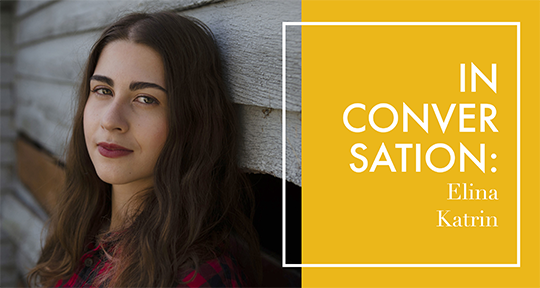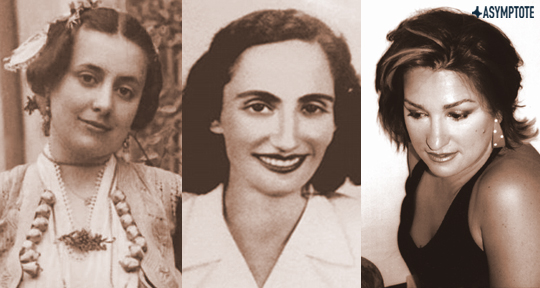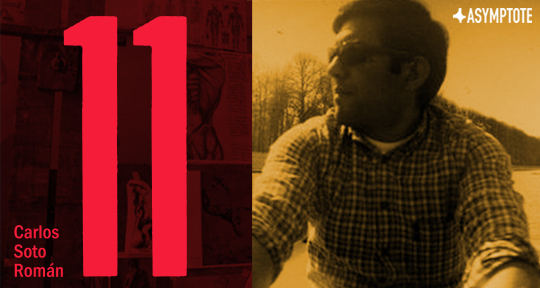Published by Newfound in October 2023, Elina Katrin’s debut poetry chapbook If My House Has a Voice renders the (un)belonging of immigration, the fluidity of the cross-cultural self, and the sensory core of memories in a vulnerable, mesh-like voice woven from three languages, emojis, and blank spaces. Born in St. Petersburg, Russia, to a Russian mother and a Syrian father, and currently living in Southern California, Katrin is profoundly aware of how living between cultures and languages both enriches and destabilizes the subject: in her work, multilingualism multiplies meaning, yet makes the mother tongue something which can be gradually forgotten, mixed with other languages, or, suddenly, spoken with an accent—somehow less authentically than before. Katrin’s poems—previously featured in Electric Literature, Poetry Daily, and Nimrod, among others—move across Syria, Russia, and the United States, recounting wounds both old and new, the love and pain of familial bonds, and moments of exhilarating rebellion and excruciating self-scrutiny. In this interview, I spoke with Elina about her experiences with immigration, her poetic techniques, food (and, more broadly, the sensory) as a medium for memories, translation, and her “personal English.”
Sofija Popovska (SP): Congratulations on your debut chapbook! It’s definitely one of those rare books that make reading them for the first time feel like a homecoming. Can you tell me a little about how it came to be?
Elina Katrin (EK): Thank you so much. The chapbook originally started as a full-length book, or rather, my MFA thesis. Though I technically graduated with a complete manuscript, I quickly realized that the full-length needed more work. However, many poems in my thesis felt done and interconnected, so I decided to put them together into a chapbook. When I started treating If My House Has a Voice as its own separate project, I included the title poem into the manuscript—the only one from the chapbook that I wrote before graduate school. As this project was coming together, I was thinking about the curiosities and complexities of language—its beauty, pliability, and failures. Language is what ultimately connects us, it’s the center of any relationship, no matter what shape or lack thereof that language takes. I wanted to explore that in If My House Has a Voice, so I’m delighted to hear this chapbook reads like a homecoming.
SP: One of the first things that struck me was how memory was mediated through the body in your poems: a scratched knee becomes the point where love and hurt, control and rebellion converge, and biting into pickled vegetables suggests bottled-up fears and frustrations. What inspired you to choose touch, smell, and taste as privileged modes of perception/ expression?
EK: It’s no secret that most of our memories are attached to sensory details. Songs remind us of certain people, and scents transport us back to different periods of our lives. When thinking of Syria or Russia, my life in those countries came back to me through scratched knees and pickled vegetables—little fragments of time and space that reminded me what it felt like to occupy the body of a girl or a teenager. I wanted to document, archive those memories on the page exactly as I experienced them. For this reason, many images rooted in touch, smell, taste, sight, and sound work on different levels—the literal one that describes the physical experience, and the emotional one that allows us to look into how the speaker was feeling or what she was thinking about during any sensory experience. This layering of perception hopefully gives readers the opportunity to fully be there with the speaker, experiencing moments in her life they might otherwise have no way of accessing. READ MORE…




